Spanish right attacks Biden over Columbus and conquests
- Published
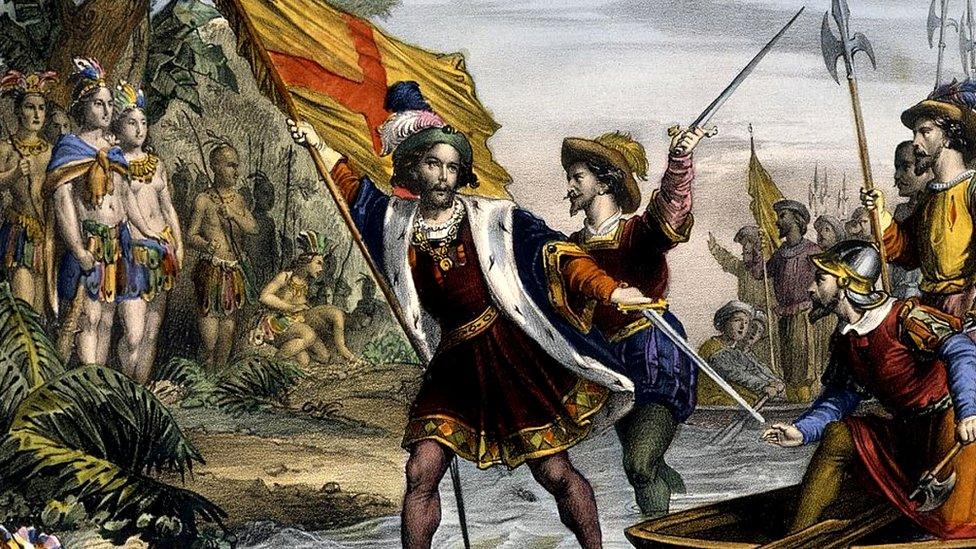
A 1753 depiction of Columbus arriving in the Caribbean
Spanish right-wing politicians are rebuffing calls for Spain to apologise for dark chapters in its colonial past and have scorned US President Joe Biden's recent acknowledgement of the atrocities suffered by indigenous peoples.
The leader of the conservative Popular Party (PP), Pablo Casado, described Spain's colonial expansion to the Americas as "the most important event in history after the Roman empire", on the eve of Spain's 12 October holiday marking Christopher Columbus's 1492 arrival in the New World.
"Does the kingdom of Spain have to apologise because five centuries ago it discovered the New World, respected those who were there, created universities, created prosperity, built entire cities? I don't think so," Mr Casado said in a video posted on Twitter.
His comments came after President Biden, in a message to mark the US Columbus Day holiday, said the explorer's arrival had led to "a wave of devastation" for Native Americans and he urged Americans not to "bury these shameful episodes of our past".
He issued a proclamation, external to make the 11 October US holiday Indigenous Peoples' Day, alongside the existing Columbus Day.
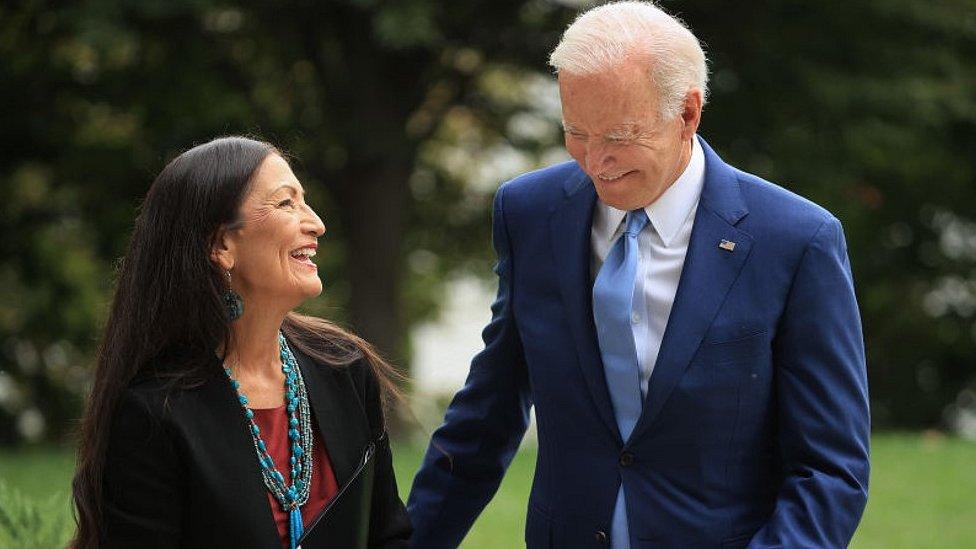
Deb Haaland is the first Native American to serve as a US cabinet secretary
In Latin America, smallpox and other diseases brought by Europeans wiped out huge numbers of indigenous people, facilitating the settlers' conquests. Their superior weaponry enabled them to inflict massacres despite their relatively small numbers.
In North America, the settlers' technological advantages were similarly key to driving indigenous people from their homes and seizing their land.
The leader of Spain's far-right Vox party, Santiago Abascal, denounced Mr Biden as "the lamentable president of the United States".
He added: "He has just attacked the great masterpiece of the Spanish conquest: the evangelisation.
"How proud we can feel about what our ancestors did," he said, describing the Spanish colonies as "the empire of human rights".
Vox, the third-largest party in parliament, frequently asserts Spain's historical importance, for example harking back to Catholic forces' defeat of Muslim adversaries during the Middle Ages.
The Catalan separatists' attempt to create their own independent state in recent years appears to have fuelled nationalist feeling in much of Spain, encouraging some to take a boldly unapologetic view of the country's history.
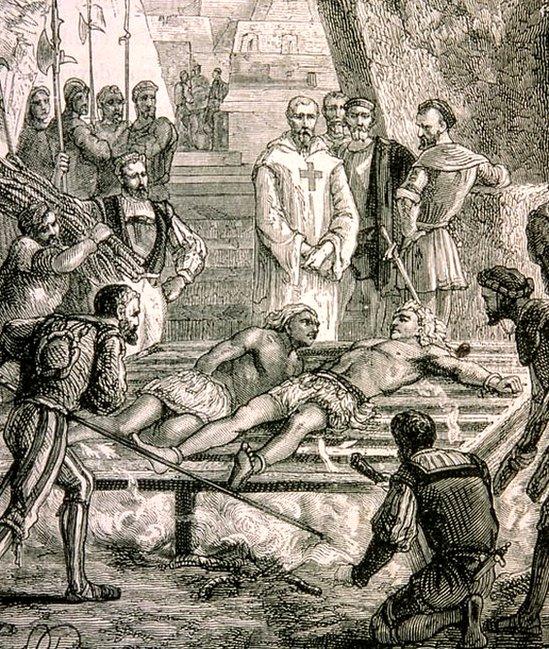
Conquistadors tortured Aztec emperor Cuauhtemoc in 1521 (19th Century engraving)

Although Spain maintains close economic and cultural relations with its former colonies, many in Latin America insist it has never acknowledged human rights abuses committed by the conquistadors and settlers who followed.
They point to the slaughter of native peoples during the conquest and ensuing subjugation which, they argue, continues today in many Latin American countries in the form of racism.
The latest backlash by Spanish politicians fuels a debate over how Spain should view its colonial past.
In September, Pope Francis, who is Argentine, marked the 200th anniversary of Mexico's independence from Spain by acknowledging the "personal and social sins" committed by the Catholic Church in Mexico after the conquest.
Mexico's leftist president, Andrés Manuel López Obrador, has championed indigenous rights and repeatedly called on Spain to apologise for the crimes of its imperial past. He welcomed the Pope's message.
In an editorial marking Spain's national holiday, the daily El País acknowledged the widespread reassessment of colonial history. It said many citizens of former imperial powers "feel uncomfortable with an idealised representation of a past which always had more bloodshed and fire than peace and goodwill". "Spain is no exception," it added.
- Published15 May 2021
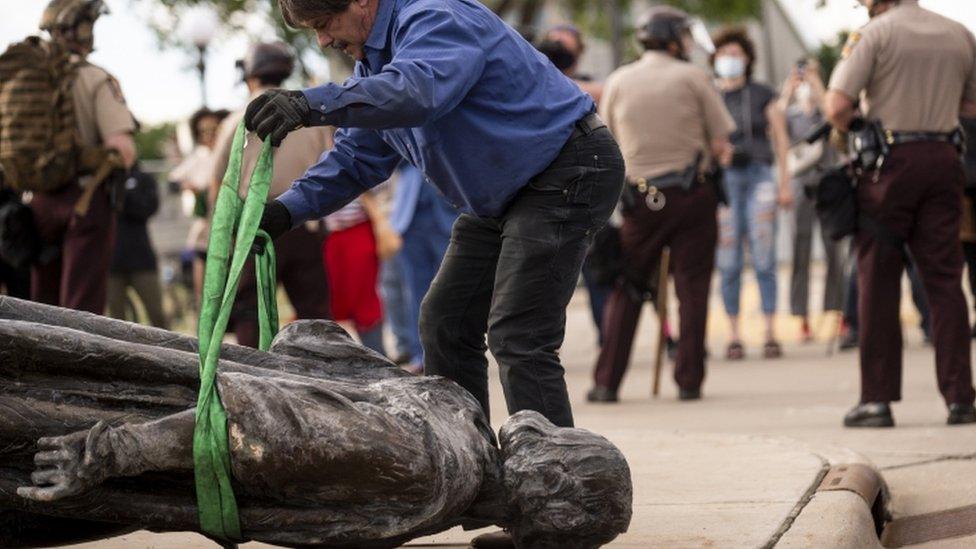
- Published7 April 2021
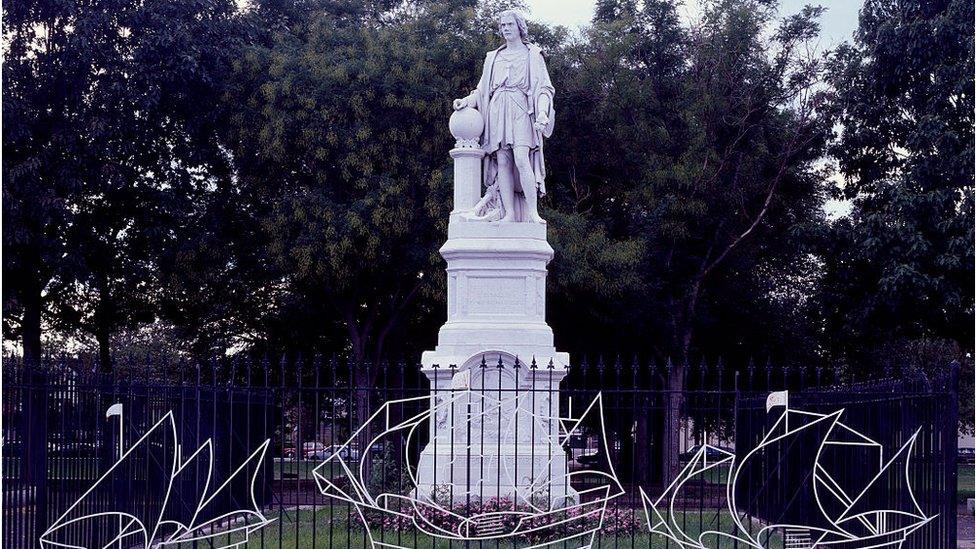
- Published16 March 2021
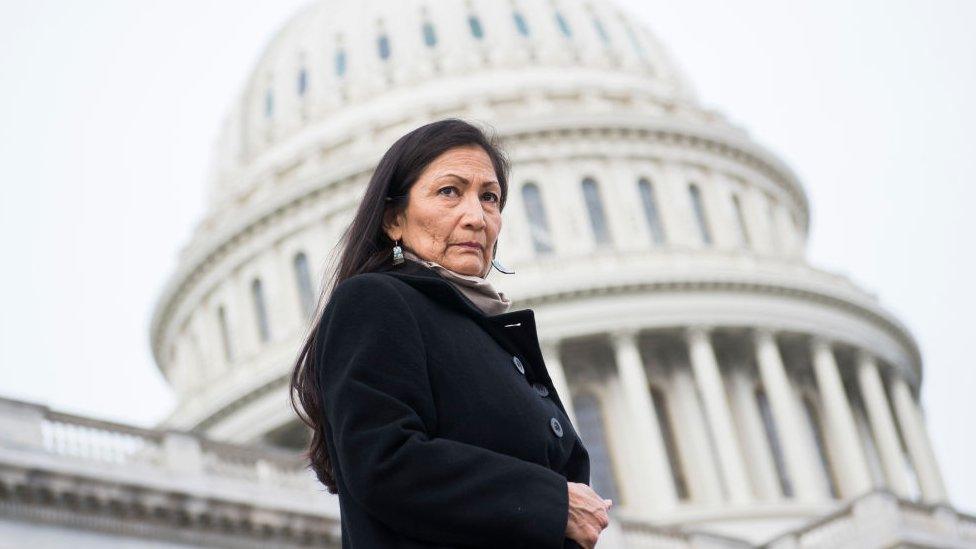
- Published12 October 2015
